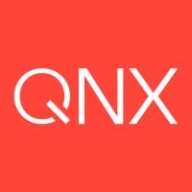

Debian and QNX Neutrino are competing systems in the software and operating system domain. Debian is dominant in general-purpose environments due to its adaptability, whereas QNX Neutrino is superior for safety-critical applications due to its robust features.
Features: Debian provides an extensive software repository, ease of package management, and strong community support, making it ideal for versatile computing tasks and server usage. QNX Neutrino features a modular microkernel architecture, real-time capabilities, and certification for safety-critical applications, which are crucial for sectors like automotive and industrial systems.
Ease of Deployment and Customer Service: Debian's open-source nature and global community support offer flexible deployment across various hardware, fostering easy customization. In comparison, QNX Neutrino provides targeted deployment with professional support, ensuring reliable implementation for specialized sectors.
Pricing and ROI: Debian is low-cost and free to deploy, minimizing setup expenses and maximizing ROI for budget-conscious projects. Its community resources also help in reducing operational costs. QNX Neutrino, though requiring a higher initial investment due to licensing costs, ensures significant returns by offering stability and regulatory compliance in critical-use environments.
Debian is a versatile and reliable operating system widely used for personal computers, servers, and embedded devices. It offers stability, security, and extensive software packages to meet the needs of developers, businesses, and enthusiasts.
Known for its robustness, Debian supports a wide range of hardware architectures, making it suitable for both desktop and server environments. It provides a comprehensive repository of open-source software, allowing users to tailor the system to their specific requirements. Its strong focus on security ensures timely updates, keeping systems protected against vulnerabilities. Debian's community-driven development ensures transparency and continuity, contributing to its reputation as a dependable choice in various computing environments.
What are the most important features of Debian?
What benefits can users expect from Debian?
In the tech industry, Debian is frequently deployed in server environments thanks to its stability and security. Educational institutions often use it for educational labs due to its cost-effectiveness and flexibility. It is also popular in embedded systems for its lightweight and customizable nature, allowing for tailored solutions in IoT and automation sectors.
QNX Neutrino, a real-time operating system from BlackBerry, delivers robust performance for embedded systems across industries like automotive, aerospace, and telecommunications.
QNX Neutrino is designed for high-performance embedded applications, providing deterministic responses that are essential in systems where timing is critical. Its microkernel architecture ensures maximum security and reliability, making it a trusted choice for developing safety-critical applications. QNX Neutrino's ability to support multitasking and asymmetrical processing adds flexibility, supporting resource utilization across different hardware environments.
What are the key features of QNX Neutrino?In industries like automotive, QNX Neutrino powers complex systems such as Advanced Driver Assistance Systems, ensuring real-time data processing for enhanced safety. In aerospace, it supports flight control systems where reliability and timing precision are crucial. Telecommunications benefit from its scalability and fault resilience, enabling robust network infrastructure.
We monitor all Operating Systems (OS) for Business reviews to prevent fraudulent reviews and keep review quality high. We do not post reviews by company employees or direct competitors. We validate each review for authenticity via cross-reference with LinkedIn, and personal follow-up with the reviewer when necessary.